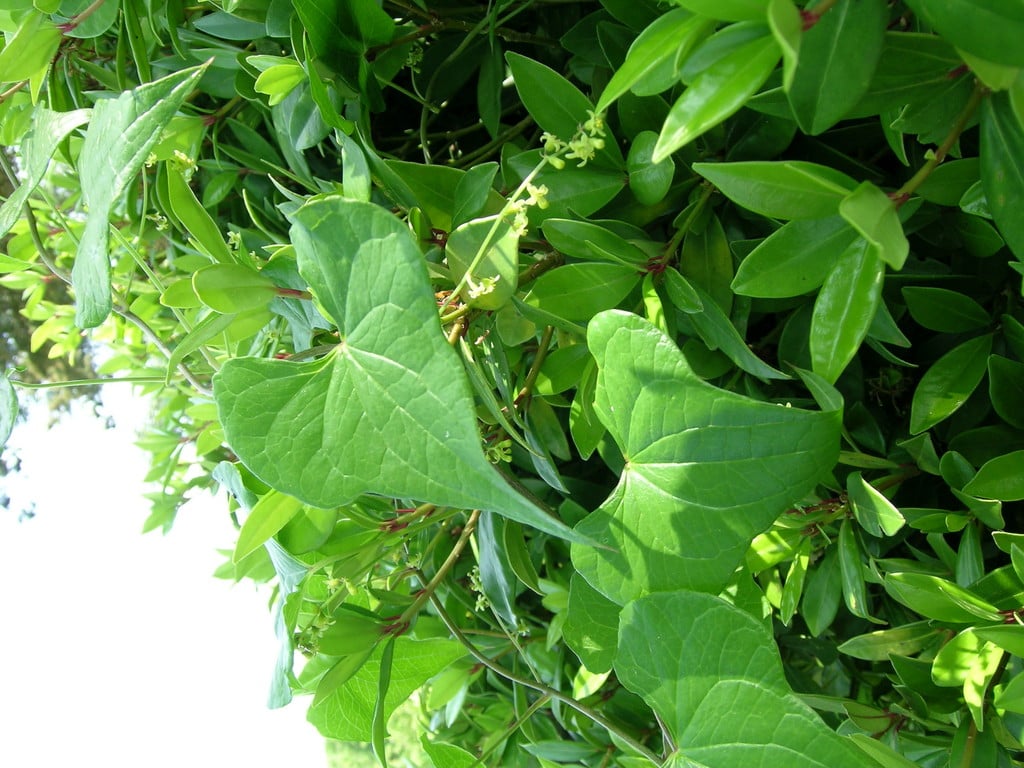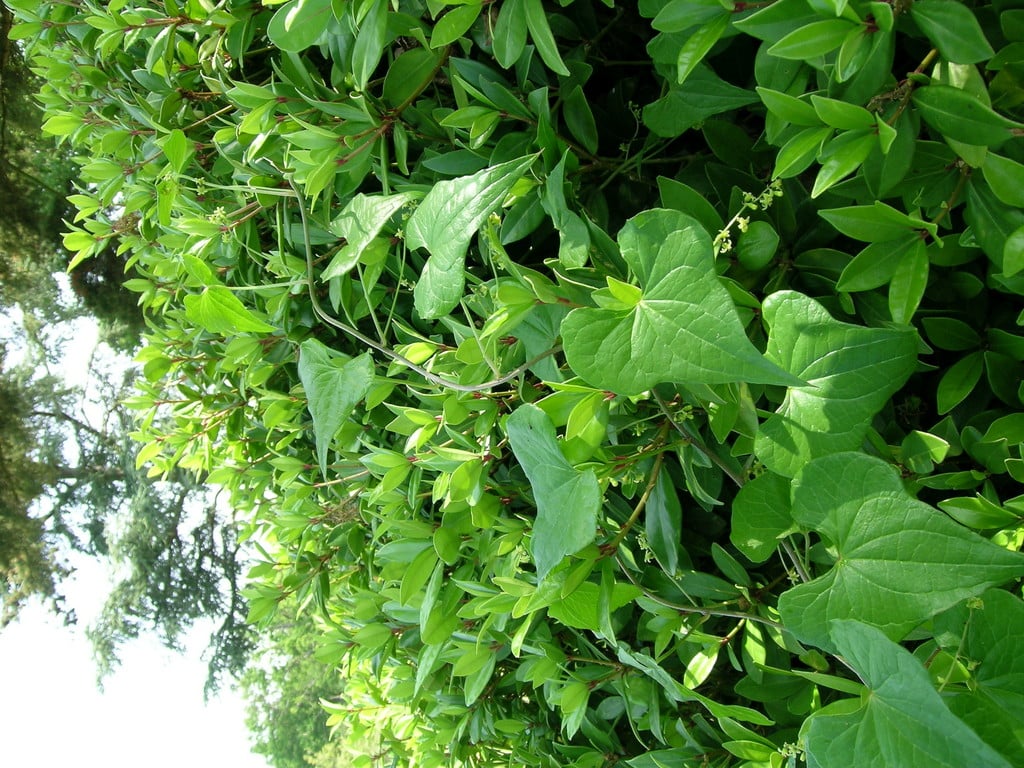Tamus communis
black bryony
A herbaceous perennial climber often found in woodland margins, scrub and hedges. It has deep, fleshy roots and alternate, glossy heart shaped leaves to 18cm long. Small yellow-green flowers are produced in summer which have a cinnamon fragrance, and are followed by round red berries that remain on the plant until winter
Synonyms
Tamus communisSize
Ultimate height
2.5–4 metresTime to ultimate height
2–5 yearsUltimate spread
2.5–4 metresGrowing conditions
Moisture
Moist but well–drained, Well–drainedpH
Acid, Alkaline, NeutralColour & scent
| Stem | Flower | Foliage | Fruit | |
| Spring | Green | |||
|---|---|---|---|---|
| Summer | Green Yellow | Green | ||
| Autumn | Green Yellow | Red | ||
| Winter | Red |
Position
- Full sun
- Partial shade
Aspect
East–facing or South–facing or West–facing
Exposure
Exposed or Sheltered Hardiness
H5Botanical details
- Family
- Dioscoreaceae
- Native to GB / Ireland
- Yes
- Foliage
- Deciduous
- Habit
- Climbing
- Potentially harmful
- TOXIC if eaten, skin irritant. Wear gloves and other protective equipment when handling Pets (dogs): TOXIC if eaten, skin irritant - see the HTA guide to potentially harmful plants for further information and useful contact numbers
- Genus
Dioscorea can be evergreen or deciduous, twining perennials with tuberous roots and simple or palmate leaves and small bell-shaped greenish or yellow flowers in racemes from the leaf axils
- Name status
Correct
- Plant range
- Europe, Mediterranean, Macaronesia, SW Asia
How to grow
Cultivation
An interesting addition to wildlife areas, or scrambling over a mature hedge, with glowing red berries attractive to birds. Grows freely in sun and partial shade, less successful in full shade and in damp or poorly drained soils. See bryony for more information
Propagation
Propagate by seed
Suggested planting locations and garden types
- Wildlife gardens
- Wall side borders
Pruning
No pruning required, but long stems may be shortened or removed where not wanted. Wear gloves when handling the plant
Pests
May be susceptible to aphids and froghoppers
Diseases
Generally disease-free
Love gardening
Sign up to receive regular gardening tips, inspiration, offers and more
View our Privacy Policy
Get involved
The Royal Horticultural Society is the UK’s leading gardening charity. We aim to enrich everyone’s life through plants, and make the UK a greener and more beautiful place.

